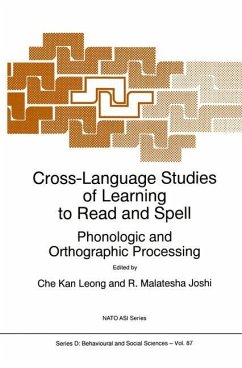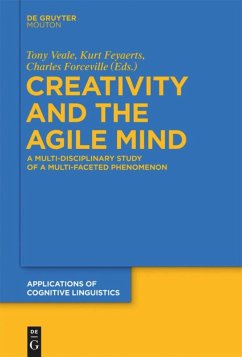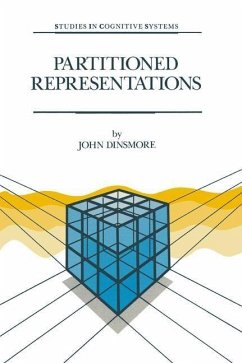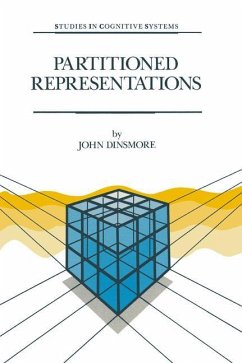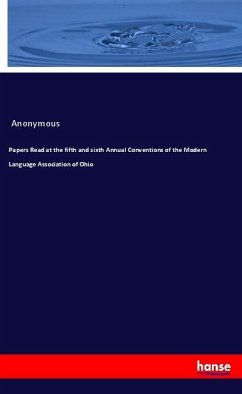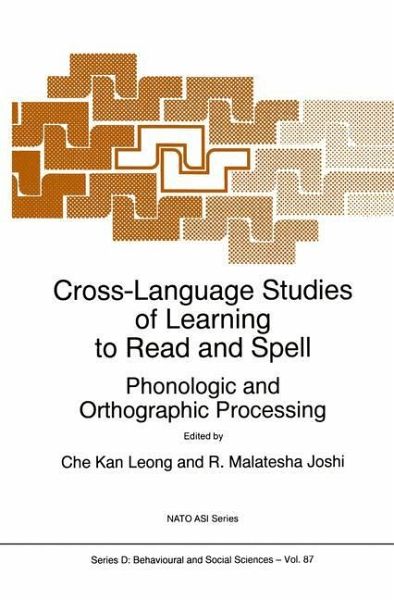
Cross-Language Studies of Learning to Read and Spell:
Phonologic and Orthographic Processing
Herausgegeben: Leong, C.K.; Joshi, R.M.

PAYBACK Punkte
113 °P sammeln!
The present volume is based on the proceedings of the Advanced Study Institute (AS I) sponsored by the North Atlantic Treaty Organization (NATO) held in Alvor, Algarve, Portugal. A number of scholars from different countries participated in the two-week institute on Cognitive and linguistic aspects of reading, writing, and spelling. The present papers are further versions with modifications and refinements from those presented at the Advanced Study Institute. Several people and organizations have helped us in this endeavor and their assistance is gratefully acknowledged. Our special thanks are...
The present volume is based on the proceedings of the Advanced Study Institute (AS I) sponsored by the North Atlantic Treaty Organization (NATO) held in Alvor, Algarve, Portugal. A number of scholars from different countries participated in the two-week institute on Cognitive and linguistic aspects of reading, writing, and spelling. The present papers are further versions with modifications and refinements from those presented at the Advanced Study Institute. Several people and organizations have helped us in this endeavor and their assistance is gratefully acknowledged. Our special thanks are to: the Scientific Affairs division of NATO for providing the major portions of the financial support, Dr. L.V. da Cunha of NATO and Dr. THo Kester and Mrs. Barbara Kester of the International Transfer of Science and Technology of the various aspects of the institute; and (ITST) for their help and support the staff of Hotel Alvor Praia for making our stay a pleasant one by helping us to runthe institute smoothly.





